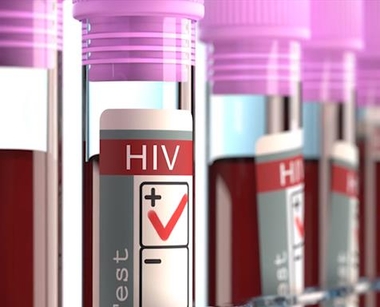Reports of an HIV cure premature

by Rob Howard
Associate Editor
London’s The Sunday Times reported Sunday that British researchers were hopeful that they were close to a cure for HIV. Although the ambitious study has shown result in one patient, it turns out that the expectation was overstated.
The Times report said, “A British man with HIV hopes to become the first in the world to be cured of the disease by using a pioneering new therapy designed to eradicate the virus.
“The 44-year-old is the first of 50 people to complete a trial of the ambitious treatment, designed by scientists and doctors from five of Britain’s leading universities.”
Several news sources including the Human Rights Campaign leapt on the report, running leads like HRC’s “New Study – The ‘Brink of an HIV cure?’” HRC’s blurb in its daily news update said, “A new study conducted by a team of British scientists found that HIV reached undetectable levels in a participant who underwent an intensive treatment regimen designed to reduce the number of HIV-infected cells in the body. The scientists believe this approach could be the ‘brink of an HIV cure.’”
The British HIV/AIDS organization NAM AIDSmap took a more cautious stance on their website on October 3, saying, “The Sunday Times yesterday reported that HIV had become undetectable in the blood of one man taking part in the RIVER study, a trial of an intensive treatment regimen designed to test whether it is possible to reduce levels of HIV-infected cells in the bodies of people recently infected with HIV. The researchers hope that the treatment may eradicate HIV infection altogether.
“The Sunday Times reported that British scientists are on the ‘brink of an HIV cure’. In fact, the study is still in its early stages and will not be able to describe participants as ‘cured’ until extensive follow-up has taken place. Investigator Professor Sarah Fidler of Imperial College, London, told The Sunday Timesthat participants in the study will be followed for five years.”
NAM AIDSmap then followed up Tuesday with an update, reporting, “The CHERUB Collaboration has issued a statement confirming that the RIVER study will report its findings in 2018. Until then the researchers emphasise that ‘we cannot yet state whether any individual has responded to the intervention or been cured.’
“The researchers point out ‘An important clarification is that all participants involved in the study will be expected to have no HIV in their blood because they are receiving antiretroviral therapy – these are the standard drugs we use to treat HIV. This does not mean they have been cured as some headlines have suggested. This does mean that their immune systems will recover and that they will not transmit the virus.’"
The Sunday Times report, if read in its entirety, supports the more cautious approach, describing the therapy being tested in detail, explaining how in theory, it can find the dormant T-cells infected with the HIV virus and kill it.
The Times report continued, “’This therapy is specifically designed to clear the body of all HIV viruses, including dormant ones,’ said Professor Sarah Fidler, a consultant physician at Imperial College London.
“’It has worked in the laboratory and there is good evidence it will work in humans too but we must stress we are still a long way from any actual therapy.
“’We will continue with medical tests for the next five years and at the moment we are not recommending stopping Art but in the future depending on the test results we may explore this.’”
ART stands for Anti-Retroviral Therapy which is the main current treatment for HIV. ART targets active T-cells that are spewing millions more viruses to infect other T-cells.
The Timesreport concluded by quoting the CEO of an AIDS charity, welcoming the study: “Ian Green, chief executive of the Terrence Higgins Trust, the Aids charity, said: ‘There is still no cure for HIV and we welcome this ambitious study which looks to eradicate the virus completely from the bodies of people living with HIV, instead of suppressing it.’”
People hearing that the study believes it is close to a cure, can get more information from NAM AIDSmap, at http://www.aidsmap.com/page/3087965.
Copyright 2016 The Gayly – October 5, 2016 @ 3:50 p.m.





